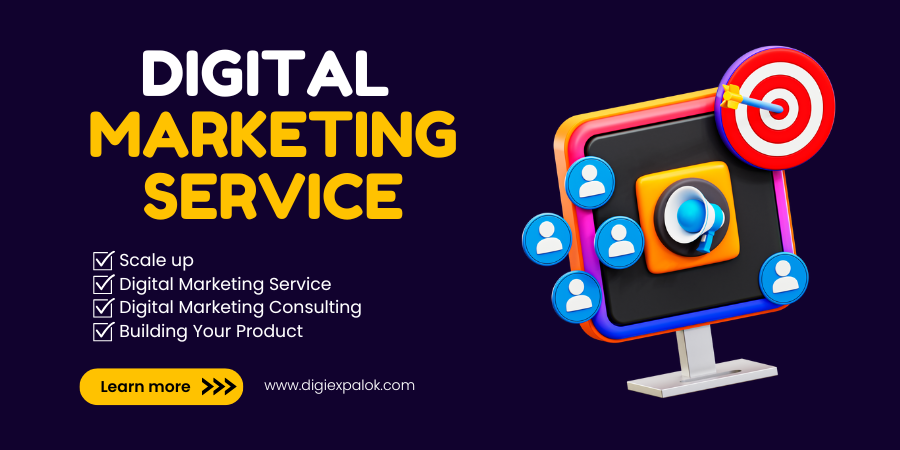Hello world!
February 11, 2025About Me & My Expert
March 15, 2025As we step into 2025, the digital marketing landscape is experiencing an era of unprecedented growth and innovation. The global digital marketing market size reached USD 410.7 Billion in 2024. Looking forward, the market is projected to reach USD 1.18 trillion by 2033, exhibiting a growth rate (CAGR) of 11.22% during 2025-2033. This remarkable growth signals a shift in how businesses connect with customers, driven by advanced technologies and evolving marketing strategies. Let’s explore these pivotal trends that are reshaping the future of digital marketing.
What’s help in Digital Era
In the digital era, technology plays a pivotal role in helping businesses and individuals thrive by providing access to innovative tools and platforms. Artificial intelligence and automation streamline operations, enhance personalization, and improve customer engagement, while data analytics enable real-time insights for informed decision-making. Social media and e-commerce platforms offer businesses a global reach and direct communication with consumers, boosting brand visibility and sales.

1. Access of Information
Access to information plays a crucial role in digital marketing by enabling businesses to make data-driven decisions, optimize strategies, and personalize customer experiences. With the vast amount of data available from various sources, such as social media, websites, and search engines, marketers can gain valuable insights into customer behaviour, preferences, and trends. This allows them to create targeted content, refine advertising efforts, and measure campaign performance in real-time.
2. Social Media & Networking
Social media and networking are essential components of digital marketing, offering businesses a powerful platform to connect with their audience, build brand awareness, and drive engagement. Through platforms like Facebook, Instagram, Twitter, and LinkedIn, companies can interact with customers in real time, respond to inquiries, and gather feedback. Social media allows for targeted advertising, enabling marketers to reach specific demographics based on interests, behaviors, and location.
3. E-commerce & Online Transactions
E-commerce and online transactions are fundamental to digital marketing, as they enable businesses to reach a global audience and provide a seamless shopping experience. Through e-commerce platforms, companies can showcase their products or services, allowing customers to browse, compare, and make purchases at their convenience. Digital marketing strategies, such as targeted ads, SEO, and email marketing, help drive traffic to these e-commerce sites, increasing visibility and sales.
4. Automation & Artificial Intelligence (AI)
Automation and Artificial Intelligence (AI) play a transformative role in digital marketing by enhancing efficiency, personalization, and data-driven decision-making. Automation tools streamline repetitive tasks like email marketing, social media scheduling, and customer segmentation, freeing up time for marketers to focus on strategy and creativity. AI, on the other hand, helps analyze vast amounts of data, uncovering insights that can inform targeted campaigns. Machine learning algorithms enable businesses to predict consumer behavior, personalize content, and optimize ad placements.
5. Mobile Technology
Mobile technology has revolutionized digital marketing by providing businesses with direct, real-time access to consumers on-the-go. With the widespread use of smartphones, marketers can leverage mobile apps, responsive websites, and location-based services to deliver targeted, personalized content to users at any time and place. Mobile devices enable businesses to send push notifications, SMS messages, and in-app advertisements, creating opportunities for immediate engagement.
6.Big Data and Analytics
Big Data and analytics play a pivotal role in digital marketing by providing businesses with valuable insights into customer behaviour, preferences, and trends. With access to vast amounts of data from various sources, such as social media, website interactions, and purchase histories, marketers can segment their audience more effectively and tailor campaigns to specific customer needs. Analytics tools help track and measure the performance of digital marketing efforts in real time.
7. Digital Marketing Tools
Digital marketing tools are essential for optimizing and streamlining various aspects of marketing campaigns, allowing businesses to enhance their online presence and reach their target audience effectively. These tools cover a wide range of functions, such as search engine optimization (SEO), content creation, social media management, email marketing, and analytics. For instance, tools like Google Analytics help track website traffic and measure campaign performance, while platforms like Hootsuite.
8. Telecommuting & Remote Work
Telecommuting and remote work have become increasingly important in digital marketing, offering flexibility and access to a global talent pool. With the ability to work from anywhere, marketing teams can collaborate across different time zones and regions, bringing diverse perspectives and expertise to campaigns. Remote work encourages the use of digital communication tools like Slack, Zoom, and project management platforms such as Asana or Trello, which help maintain seamless collaboration, track progress, and ensure efficiency.
In Conclusion :- Given above these can helps you growth your business/website. The Digital Era has significantly transformed how we access help and resources. From online tutorials and tech support to AI-driven assistants and collaboration tools, technology now plays a pivotal role in providing assistance in nearly every aspect of life. The ease of accessing information, learning new skills, connecting with others, and utilizing cloud services has empowered individuals and organizations a like.